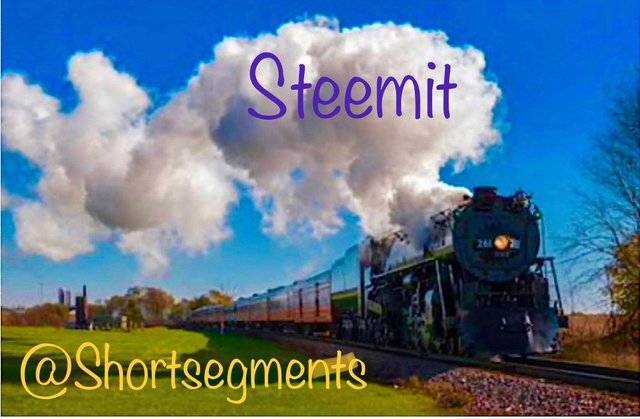Steem Economics: my understanding of the different paths to profit on Steemit.

Steem Blockchain: Steemit Application
www.steemit.com
One of the most successful *dapps or decentralized applications on the Steem blockchain is the website steemit.com.
It is a platform that allows both amateur and seasoned publishers to monetize their content because the website pays content creators and curators.
Lets pause to clearly define these words
Monetize: make money of your content.
Content: words, pictures, photographs or other forms of artistic expression.
Content creators: people who create content.
Curators: people who look at the content and give upvotes.
Engagement: written dialogue between content creators and curators in the comments.
The Proof-of-Brain mechanism POB
POB rewards two ways.
POB rewards content creators when their articles get upvoted because the curators believe the content adds value to the network and attract new users.
POB rewards curators and encourages engagement and discovery of meaningful content, through upvote rewards. To put it simply, the system values content, curation and engagement as all three can earn rewards.
Reward Structure
Let’s take a look at how Steemit rewards its content contributors. There are three important parts of the content rewards on Steemit: STEEM, Steem Power (SP) and Steem Dollars (SBD).
· STEEM is a liquid cryptocurrency that can be bought and sold on exchanges, as well as transferred to other parties as a form of payment. Note that NOT all rewards issued on Steemit are in the form of Steem, but also SP and SBD. Users have to convert their SP and SBD to STEEM to trade on public exchanges for Fiat like USD or other currency. These other currencies are often referred to as fiat.
· Steem Power is the STEEM that has been committed to a four-week vesting schedule. SP balances are non-transferable and are generally non-divisible. It can be converted back to STEEM, on request, over a period of four weeks, via 4 equal weekly payments. Because it represents users’ long-term commitment to the website, SP can be viewed as users’ influence on Steemit. When users vote on content, their influence over the distribution of the rewards pool is directly proportional to the amount of SP that they have. Another incentive for holding SP is that 15% of yearly inflation is paid to SP holders as interest on the balance of SP that remains vested.
· Steem Dollars, also called Steem Blockchain Dollars or Steem Backed Dollars (SBD), is the vehicle implemented to protect the system’s stability. Cryptocurrency is known to be volatile, or to fluctuate widely in value. This reduces that volatility. It is similar to convertible notes (short-term debt instruments) in the real world. SBD allows the holder to convert it back to STEEM with a minimum notice at the fair market price of the token. One SBD can be traded for roughly $1 worth of STEEM. Under normal market conditions, the trading price is expected to fall in the range of $0.95 to $1.05. Whenever the price falls below $1, SBD holders also receive interests.
Every time a writer receives a content reward, 50% is paid as SP, and the remaining 50% is paid as Steem, SBD or both. Users also have the option to get paid in 100% SP, as well as decline content rewards. When a user declines a content reward payment, the amount remains in the reward pools. Thanks to its unique features, steemit.com has grown immensely since its inception. It now has an active user base over one million before the Hardfork which created other the platform Hive and Steem.
Yearly New STEEM Token Distribution
The rewards we discussed above come from newly generated STEEM tokens on the blockchain. This new token generation is referred to as token inflation or inflation for short. The new token generation rate on Steem was set at 9.5% per year in December 2016, and the inflation rate goes down by roughly 0.5% per year; it will eventually stop when it reaches 0.95% in about 20.5 years.
Distribution of newly created or minted tokens.
Of the coins generated each year, 75% are sent to the “reward pools” which as we have discussed, and they are distributed to content creator and curators on the network. 15% of the new tokens are distributed to vested token holders, and the remaining 10% is distributed to the witnesses, who are also called delegates that are elected to produce blocks on DPoS blockchains. This means they run/maintain computer servers in their home, that run copies of the open source software, for the Steem blockchain and the applications like Steemit, which run on the blockchain chain.
Steem
The native digital asset on Steem blockchain is a cryptocurrency token called STEEM. STEEM has nearly instant settlement and zero transaction fees which makes ad-free business models possible for publishers.
STEEM has two unique properties when compared to other cryptocurrencies. First, it has a pool of tokens (called the “reward pools”) dedicated to incentivizing content creation and curation. Second, it has a voting system that utilizes the knowledge of the crowd to determine the value of every content on the network. When coupled together, these two unique properties are referred to as Proof-of-Brain by the development team. The Proof-of-brain works a lot like the Proof-of-Work algorithm where tokens are distributed to the participants based on the amount of work they have done.
DPoS Mechanism
With Steem, the witnesses are elected by the collective Steem Power-weighted witness votes from Steem accounts. Each account can cast up to 30 votes to 30 different candidates, and votes can be added or removed at any time. There is a special section called Witnesses in the drop down menu on the Steem website home page.
Once elected, witnesses are responsible for the block production of the Steem blockchain. Each block contains a certain number of transactions on the blockchain. An example of a transactions is the uploading of a post, upvoting a post, commenting on a post, sending money or receiving money. Although each account can vote for 30 members, there are only 21 active witnesses. Twenty of those witnesses are selected by approval rating, and one is time shared by every witness that didn’t make it to the top 20; the chances of being selected is proportional to their total votes. The sequence of the 21 active witness is shuffled every round to prevent one witness from constantly ignoring blocks produced by the same witness placed before. Any witness who misses a block and hasn’t produced in the past 24 hours will be disabled until the witness updates the block signing key.
Scalability of Steem
Steem blockchain has proved itself over the past 4 years that it can handle heavy traffic on social media site steemit.com. (lots of transactions). Several sources quoted below would indicate that the Steem network has good scalability or ability to handle increasing amounts of transactions as the number of users grows.
In 2018 a comparison was done to Reddit, the huge decentralized blogging network.
In 2015, Reddit’s 8.7 million users generated an average of 245 transactions per second. The Steem blockchain is built upon Graphene which powers the decentralized, blockchain-based asset exchange Bitshares. Graphene has been tested and has shown it can handle over 1000 transactions per second. This is represented as 1,000 TPS . The technology has the calculated potential to scale to 10,000 TPS with upgrades on server capacity and communication protocols. In a 2018 article the volume of transactions on Steemit or TPS, was calculated at about 18 per second. This means all the applications running on Steem blockchain uses about 2% of its total capacity. These calculations suggest Steem is capable of handling the transaction volume of a much larger user base, like the estimated 75 million users on Reddit. This also means Steem could handle the volume of daily DeFi transactions on the Ethereum blockchain without encountering slowdowns, which are common on the Ethereum blockchain, and transactions on the Steem blockchain are free.
Conclusion
The Steem blockchain has the blockchain backbone to be a great blockchain. Many game and financial applications are running on it and many more could be running on it, similar to the large number of applications running on Ethereum.
The Steem blockchain is already running it’s two basic smart contracts for Steem, Steem Power and our native Stable coin SBD, which is like Tether. Last year non-fungible token creation came to Steem blockchain and these are an important component of various types of DeFi commerce. The more you learn about Steem, the more impressed you will become.
.
.

References
Don’t take anyone’s word when it comes to your money. Verify for yourself.
.
[1] Blockchain Activity Matrix, http://blocktivity.info/
[2] Reddit Statistics, https://expandedramblings.com/index.php/reddit-stats/2/
[3] Witnesses Live Income, https://steemd.com/witnesses
[4] Steem Whitepaper, https://steem.io/steem-whitepaper.pdf
[5] Steem Bluepaper, https://steem.io/steem-bluepaper.pdf
[6] Witnesses on Steemit.com, https://steemit.com/~witnesses
.
.

.
.

hi dear @shortsegments
congratulations, you just gave a master class on this social network, I just found about many things that I did not know,that will help me to organize myself better because I want to take advantage of this beautiful social network
WOW this data is new to me
I was very surprised especially with the amount of transactions per second that steemit can execute, that is positive it means that we have a great future and an incredible growth capacity, it is something that makes me happy and motivates me
Downvoting a post can decrease pending rewards and make it less visible. Common reasons:
Submit
Thank you for your kind words.
Downvoting a post can decrease pending rewards and make it less visible. Common reasons:
Submit
@shortsegments I'm really impressed with these well written article it really means a lot to me, I've got access vital information and update myself with new Interesting features on steemit blockchain thanks much.
Downvoting a post can decrease pending rewards and make it less visible. Common reasons:
Submit
Thank you, I am happy it was useful to you. I appreciate the compliment.
Downvoting a post can decrease pending rewards and make it less visible. Common reasons:
Submit
Steemit is impressive, I must say. Learning the mechanism of rewarding both content creators and curators for socializing and engagement.
Downvoting a post can decrease pending rewards and make it less visible. Common reasons:
Submit
I agree, the platform structure is great.
Downvoting a post can decrease pending rewards and make it less visible. Common reasons:
Submit
#steemcurator01
Downvoting a post can decrease pending rewards and make it less visible. Common reasons:
Submit
Whenever you write about the basic topic of any financial or blockchain issues it's really helpful for the newbies and those who want to learn from the very beginning. your explanation style and complete expression making lessons very clear and understandable to all of the readers, i think. in my early stages of team journey I went through a lot of sport at blocks of you about basic issues of steam. I can remember those days very much. thank you very much for sharing again
Downvoting a post can decrease pending rewards and make it less visible. Common reasons:
Submit
I love this, by the numbers and thorough. The one thing that I thought about while reading this was:
“Use Facebook, they get paid; use steemit, you get paid.” Nuff’ said.
"Steem Dollars, also called Steem Blockchain Dollars or Steem Backed Dollars (SBD), is the vehicle implemented to protect the system’s stability."
And I didn't know this.
Downvoting a post can decrease pending rewards and make it less visible. Common reasons:
Submit
Hi @shortsegments
I just visited your profile to see if you published any interesting content lately. It seem that you moved FULLY to HIVE? :(
ps. Check out my recent post. Hopefully you will find it interesting and worth your time. Link here.
Stay safe,
Yours, Piotr
Downvoting a post can decrease pending rewards and make it less visible. Common reasons:
Submit